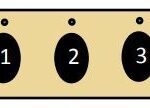Caring for a dependent, whether a child or an adult unable to care for themselves, often comes with significant expenses. For working families, understanding how to manage these costs is crucial. One valuable tool available to many is a Dependent Care Flexible Spending Account (FSA). These accounts allow you to set aside pre-tax dollars to pay for eligible dependent care services, effectively reducing your taxable income. A common question that arises when exploring these benefits is: Do After School Programs Qualify For Dependent Care Fsa?
This article will delve into the specifics of Dependent Care FSAs, outlining how they work, their benefits, and crucially, whether expenses like after-school programs are indeed eligible for reimbursement. Understanding these details can help you maximize your benefits and save money on essential care expenses.
How Dependent Care FSAs Work
Dependent Care FSAs are employer-sponsored benefit programs. If your employer offers one, you can enroll and elect to contribute a portion of your pre-tax salary to the account. This contribution is deducted from your paycheck before taxes are calculated, lowering your overall taxable income.
Instead of directly paying for services with FSA funds, you typically pay for dependent care expenses out-of-pocket first. Then, you submit a reimbursement claim to your FSA administrator, along with documentation like receipts, to get reimbursed from your FSA account.
To ensure your claim is processed smoothly, your receipts must contain specific information, including:
- Dependent’s Name: The name of the child or adult receiving care.
- Care Provider’s Name: The name of the organization or individual providing the care.
- Date of Service: The exact date(s) when care was provided.
- Type of Service: A clear description of the care service rendered.
- Cost: The amount you paid for the service.
The primary advantage of a Dependent Care FSA is the tax savings. By using pre-tax dollars, you reduce your taxable income, leading to lower income taxes. For example, if you’re in the 24% federal tax bracket, every $1,000 you spend on dependent care through an FSA could save you $240 in federal taxes.
:max_bytes(150000):strip_icc()/dependent-care-fsa_final-c8b6b245dc45448aa7538bb91a854bb8.png)
Dependent Care FSA Contribution Limits for 2024 and 2025
The IRS sets annual limits on how much you can contribute to a Dependent Care FSA. For both 2024 and 2025, these limits are:
- $5,000 for single filers and couples filing jointly.
- $2,500 for married couples filing separately.
These limits represent the maximum amount you can set aside pre-tax for eligible dependent care expenses within a plan year.
Who Can Use a Dependent Care FSA?
Certain conditions must be met to utilize a Dependent Care FSA. For divorced parents, only the custodial parent can use FSA funds for child care expenses. If you are married, generally both you and your spouse must be working and earning income to qualify for reimbursement. An exception applies if one spouse is unemployed and actively seeking employment or is disabled and unable to work. If these work-related requirements aren’t met, the funds contributed to your FSA may be forfeited, and you could be responsible for taxes on the initially untaxed amount.
The funds in a Dependent Care FSA can be used for the care of:
- A child who is under the age of 13.
- A spouse who is physically or mentally incapable of self-care.
- Any other adult dependent, regardless of age, who is incapable of self-care and for whom you claim a dependent exemption on your tax return.
It’s important to note that while private school tuition is not an eligible expense, summer day camps can be covered.
Expenses That Qualify for FSA Reimbursement: Are After School Programs Included?
To be eligible for FSA reimbursement, dependent care expenses must meet the IRS definition of “eligible dependent care services.” This essentially means the care must be necessary to enable you (and your spouse, if applicable) to work or look for work.
Yes, after-school programs generally DO qualify for Dependent Care FSA reimbursement. Along with after-school care, other qualifying expenses include:
- Physical Care: This encompasses hands-on assistance with activities of daily living for dependents unable to care for themselves.
- In-Home Care: Services provided in your home, such as nannies, babysitters (when care is work-related, not for leisure), or au pairs.
- Institutional Care: Care provided in a facility setting, such as child daycare centers or adult daycare centers.
- Summer Day Camps: Day camps, but not overnight camps, are typically eligible.
- Before-School Care: Similar to after-school programs, care provided before school hours to allow parents to work.
- Transportation by a Caregiver: If a caregiver provides transportation as part of their care services.
- Application Fees and Deposits: Fees required to secure care are reimbursable if care is subsequently provided.
For a comprehensive list and detailed explanations, refer to IRS Publication 503: Child and Dependent Care Expenses.
Expenses That Do Not Qualify for FSA Spending
It’s equally important to know what expenses are not eligible for Dependent Care FSA reimbursement. Remember, the core principle is that the care must be work-related. Expenses that generally do not qualify include:
- Educational Expenses: Kindergarten, tuition for any grade level, summer school, tutoring, and school tuition are not eligible.
- Overnight Summer Camps: Only day camps are typically covered.
- Enrichment Programs and Lessons: Activities like music lessons, sports lessons, or other enrichment programs are usually not eligible.
- Meals: The cost of meals is generally not a reimbursable expense unless it’s inseparable from the care service provided.
- Housekeeping: General housekeeping services are not eligible unless they are directly related to the care of the dependent and incidental to that care.
Special Considerations for FSA Dependent Care
Before enrolling in a Dependent Care FSA, keep these key points in mind:
- No Pre-funding: Unlike some healthcare FSAs, dependent care FSAs are not pre-funded by your employer. You are reimbursed based on the funds you have contributed through payroll deductions.
- Compare with Child and Dependent Care Tax Credit: Evaluate whether the FSA or the Child and Dependent Care Tax Credit offers greater tax benefits for your specific situation. You cannot claim both for the same expenses.
- “Use-It-Or-Lose-It” Rule: FSAs typically operate under a “use-it-or-lose-it” rule. This means you must use the funds within the plan year or you may forfeit the unspent balance.
- Grace Period or Carryover: Some plans may offer a grace period (usually until March 15th of the following year) to use remaining funds or allow a limited carryover of unused funds to the next plan year, but these are not mandatory.
- Annual Enrollment: Participation in a Dependent Care FSA is not automatic; you must re-enroll each year during open enrollment.
- Limited Changes: You can generally only change your contribution amount during open enrollment or within 31 days of a qualifying life event (marriage, birth/adoption, divorce, change in employment, etc.).
What Is a Dependent Care Flexible Spending Account (FSA)?
A Dependent Care Flexible Spending Account (FSA) is a pre-tax benefit account offered by employers that allows employees to pay for eligible dependent care services, such as daycare, preschool, summer day camps, before- and after-school programs, and adult daycare, with pre-tax dollars.
What Expenses Can I Use a Dependent Care FSA for?
You can use a Dependent Care FSA for expenses that meet the IRS definition of eligible dependent care services. Crucially, these services must be necessary to enable you and your spouse (if married) to work or actively look for work.
What Is the Dependent Care FSA Limit for 2024?
The Dependent Care FSA limit for 2024 (and 2025) is $5,000 for single filers and couples filing jointly, and $2,500 for married couples filing separately.
The Bottom Line
Dependent Care FSAs are a valuable benefit for working families managing dependent care costs. Understanding that after-school programs are generally eligible for reimbursement can help you utilize these accounts effectively. By carefully planning your contributions and understanding the rules and eligible expenses, you can significantly reduce your tax burden and make quality dependent care more affordable. Consult your employer’s benefits administrator or a tax professional for personalized advice regarding your specific situation and Dependent Care FSA options.

